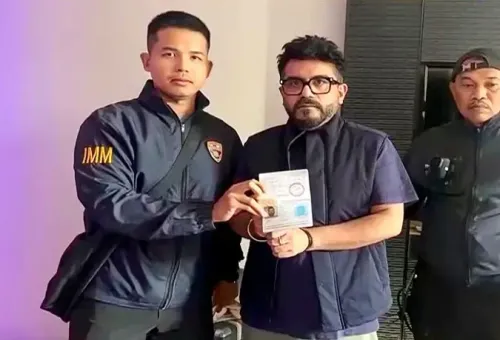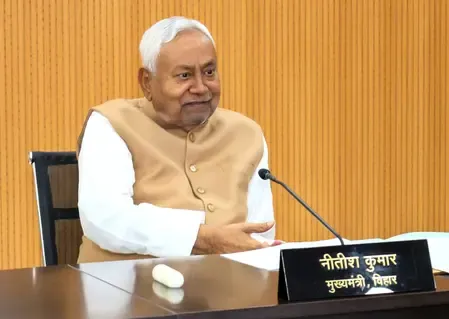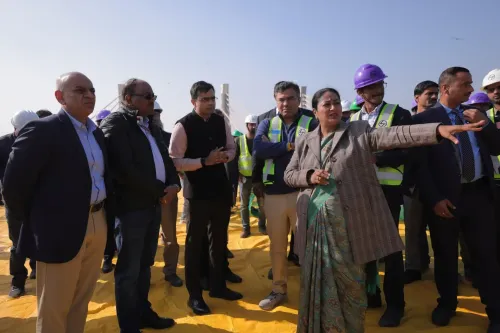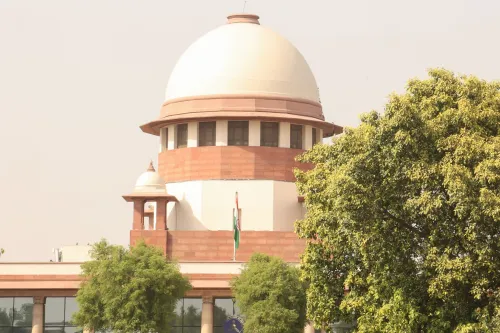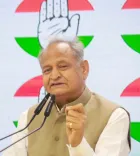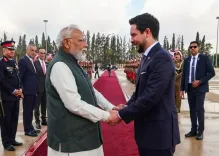What Challenges Lie Ahead for Newly Appointed CJI B.R. Gavai?
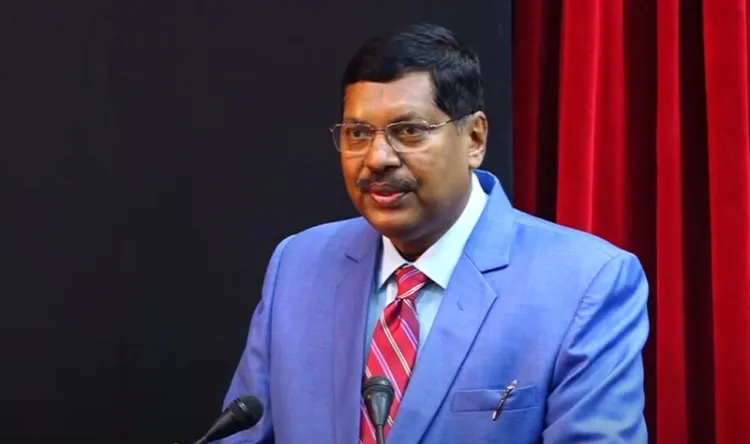
Synopsis
Key Takeaways
- B.R. Gavai is the first Buddhist CJI and the second from an SC background.
- He authored around 300 judgments in his judicial career.
- His term extends until November 23, 2025.
- He aims to restore public trust in the judiciary.
- Key challenges include the cash discovery row and legal issues surrounding the Waqf Act and Places of Worship Act.
New Delhi, May 14 (NationPress) In a significant milestone for the Indian judiciary, Justice B.R. Gavai was sworn in as the Chief Justice of India (CJI) on Wednesday, marking him as the first Buddhist and only the second individual from a Scheduled Caste (SC) background to hold this esteemed position in the nation.
The oath of office was administered by President Droupadi Murmu during a ceremony at the Rashtrapati Bhavan.
Justice Gavai's term is set to last until November 23, 2025, allowing him a tenure of just over six months. He was appointed as a Judge of the Supreme Court on May 24, 2019, during which he has authored approximately 300 judgments across various legal areas, including constitutional and administrative law, civil and criminal law, commercial disputes, arbitration law, education, and environmental law.
As CJI, Gavai begins his term amid pressing issues facing the judiciary, notably the need to restore public trust in the justice system.
Recently, in relation to the cash discovery controversy, former CJI Sanjiv Khanna submitted the report from a top court-appointed “in-house” inquiry panel to both the President and the Prime Minister.
With limited time to effect change, CJI Gavai's primary challenge will be to foster institutional credibility and ensure the judiciary is recognized for its integrity and transparency.
Earlier today, CJI Gavai and AG Masih denied an expedited hearing for a plea requesting criminal action against Justice Yashwant Varma, who is caught in a dispute regarding the alleged discovery of a large quantity of burnt cash at his bungalow following a fire on March 14.
CJI Gavai instructed advocate Mathews J. Nedumpara, the lead petitioner, to adhere to the “mentioning procedure” by emailing the apex court registry for urgent listing.
A seasoned judge with profound knowledge of constitutional law, social equity, and institutional integrity, Justice Gavai has advocated for applying the “creamy-layer” principle to exclude wealthier individuals among the SC/ST communities from benefiting from reservation quotas.
In a majority opinion from a 7-judge Constitution Bench, Justice Gavai addressed whether sub-classification among reserved categories for preferential treatment is constitutionally permissible, stating: “When the 9-Judge Bench in Indra Sawhney determined that applying such a test (creamy layer test) for Other Backward Classes supports equality as per the Constitution, why should it not apply to Scheduled Castes and Scheduled Tribes?”
He questioned: “Can the child of an IAS/IPS or civil service officer be equated with a child from a disadvantaged SC family studying in a Gram Panchayat/Zilla Parishad school?”
Justice Gavai emphasized that categorizing children of SC and ST parents who have attained high positions due to reservation alongside those engaged in manual labor would undermine the constitutional mandate.
Throughout his tenure as CJI, Justice Gavai will be closely observed for his handling of politically sensitive cases.
Ex-CJI Khanna, on May 5, suggested that a set of petitions challenging the constitutional validity of the Waqf (Amendment) Act, 2025, should be scheduled for a hearing before the Gavai-led Bench. The court had previously ordered that the cases contesting amendments to the Waqf Act, 1995 be addressed this week.
Additionally, a collection of petitions challenging the contentious Places of Worship Act, which prohibits lawsuits aimed at reclaiming places of worship or altering their characteristics from those existing on August 15, 1947, remains pending for adjudication. An interim order issued on December 12, 2024, by a Special Bench led by ex-CJI Khanna, stipulated that no new suits would be registered under the Places of Worship Act in the country, and no final or effective orders would be issued in ongoing cases until further notice.
Despite having just over six months in office, CJI Gavai's approach to these matters will significantly impact the Indian judiciary. His appointment is viewed as a representation of historically marginalized communities in the upper echelons of the Indian judiciary.


